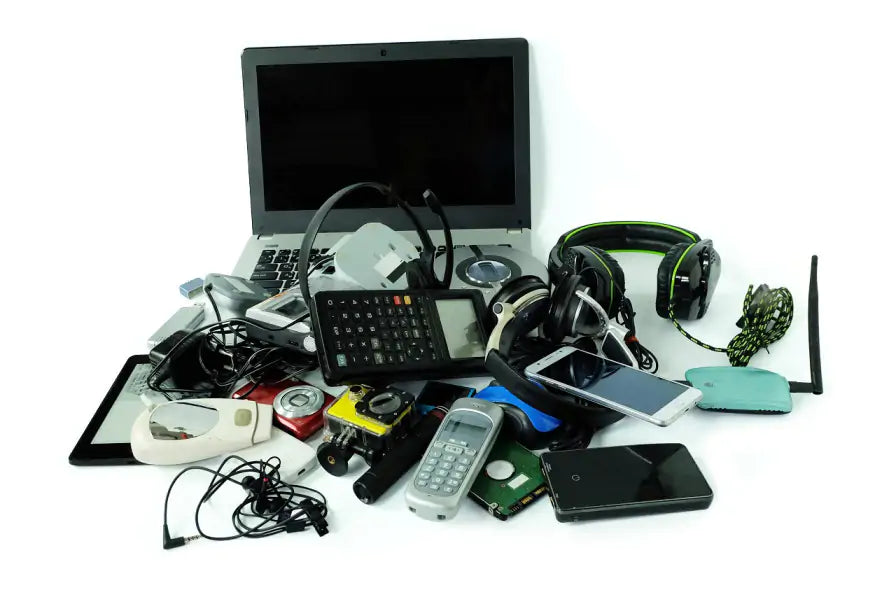Your basket is currently empty.
Shop NowHow Does Your Business Deal with E-Waste?

How Does Your Business Deal with E-Waste?
What happens when your business gets a new photocopier or office telephones? Are they put away in a cupboard or storeroom never to be seen again, or even worse, just dumped in a skip or a bin?
Electronics can contain hazardous chemicals, precious metals, and lots of other materials that can be recycled, so sending them to landfill is a big no-no.
The extent of e-waste
Estimates say that almost 50 million tonnes of e-waste will be produced in 2018. Most of it comes from China, followed closely by the United States.
The legislation
The Waste Electrical and Electronic Equipment (WEEE) regulations became law on 1st January 2014, replacing the WEEE regulations 2006. The legislation covers any piece of equipment or product that has a plug or is battery-powered. If you look at any piece of electronic equipment, you’ll notice that it has a crossed out symbol of a wheelie bin on it which tells you that it’s not supposed to be put in with general waste.

What can be recycled under WEEE?
Computers and laptops, printers, scanners, modems, routers, and telephones can all be recycled. Retailers of electrical items have to give buyers an option to recycle their old equipment when they buy something new, so they often have collection points or trade-in deals.
Some specialist companies will accept large amounts of electrical items for recycling, so if your business is revamping all of its technology, using a firm like this is a very good option.
What can be recovered from e-waste?
Many electronic items contain precious metals like gold, silver, and copper, and some have steel or aluminium parts. Plastics can be melted down to make new products. Hazardous materials like lead and mercury need to be dealt with properly as they can be harmful.
How to dispose of e-waste safely and securely
Computers and other electronic equipment can contain sensitive data which needs to be removed before you dispose of them.
With computers, deleting files or formatting the hard drive is not enough as criminals or others with the right skills can still recover the information. CDs and memory sticks need to be physically destroyed by a specialist company who will then give you a certificate to say that the items have been disposed of correctly.
Routers and networking kit should be factory reset to erase passwords and network access information, and the same goes for anything else that might be connected to your I.T network such as security cameras.
Choose a reputable recycling company
Make sure that you choose a reputable firm for your e-waste recycling because if your waste ends up being illegally dumped and traced back to you, you could face huge fines and even jail time.
Our throwaway society is obsessed with having the latest smartphone, tablet, laptop, or TV, and the amount of e-waste we produce is not going to slow down any time soon, so we need to make sure that we’re doing our bit and recycling our e-waste responsibly.






